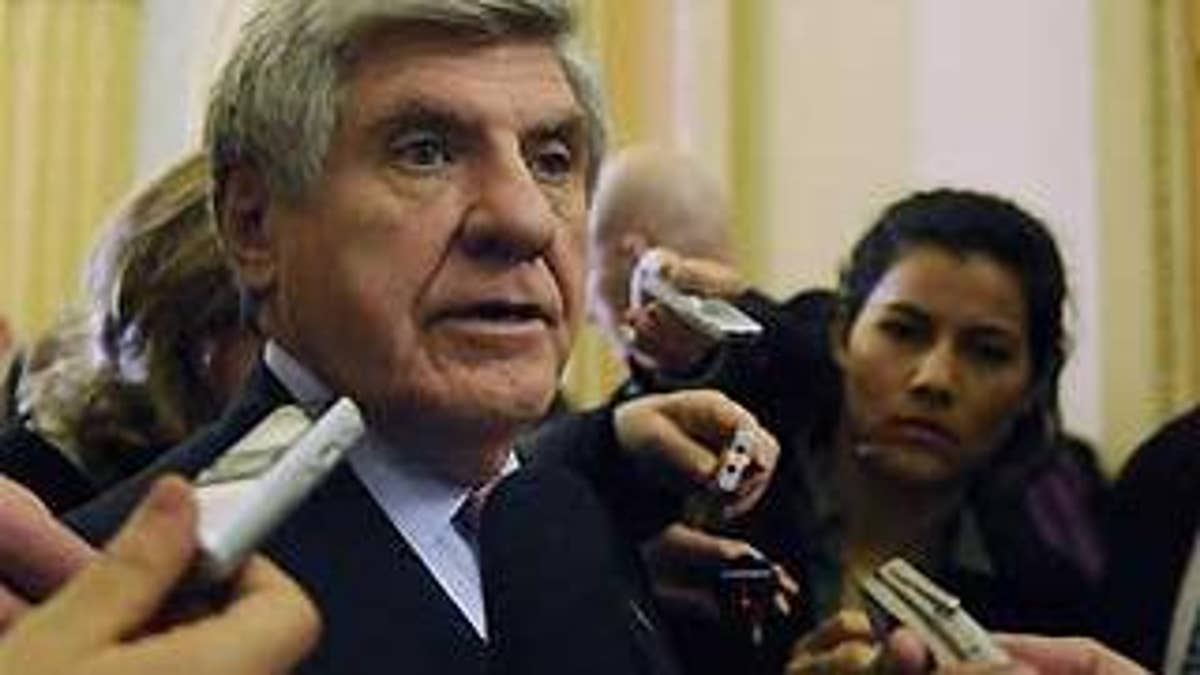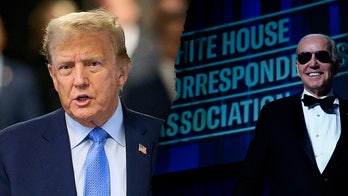
The Senate approved an $838 billion economic recovery package bill Tuesday, as Democrats held on to the few Republican supporters who helped hammer out a compromise measure last week.
The bill passed on a mostly party-line vote of 61-37. Sixty votes were needed. Three Republicans joined Democrats in passage.
Majority Leader Harry Reid, D-Nev., vowed to send a finished bill to Obama's desk "as soon as possible."
Obama, who was in Fort Myers, Fla., promoting his economic rescue efforts, welcomed the vote as "good news. ... It's a good start."
But the work has only just begun for congressional leaders in the House and Senate, who now must reconcile the differences between their two versions of the bill during what's known as a conference committee.
Those negotiations, which Reid said would start Tuesday afternoon, could drive up the price tag of the bill as each chamber fights for its priorities. The House version of the bill is $819 billion. The Senate version is $838 billion.
The talks could last through next week, potentially passing President Obama's Feb. 16 President's Day deadline.
House Majority Leader Steny Hoyer, D-Md., minced no words when discussing the possibility of debate on the stimulus package bleeding into late next week.
"Thursday, Friday, Saturday, Sunday, Monday and Tuesday and maybe Wednesday and Thursday next week may be needed to pass" the package in both chambers, Hoyer said.
The massive package is a blend of spending, tax cuts and incentives that both the administration and Democrats in Congress hope will create jobs and stimulate the economy. But most Republican lawmakers oppose it, saying that while government action may be necessary the plan as crafted is too bloated with wasteful spending.
The House and Senate are expected to be out of session next week for the President's Day recess. But House Speaker Nancy Pelosi, D-Calif., said weeks ago that the recess could be in jeopardy if lawmakers hadn't finished work on the stimulus measure.
Hoyer's statement indicated the potential challenges facing House and Senate negotiators as they try to bridge differences and create a single, unified measure to send to Obama.
One concern is that altering the Senate bill could risk the support of the three key Republican senators: Sens. Olympia Snowe and Susan Collins of Maine and Pennsylvania's Arlen Specter.
Specter has suggested that the House approve something very close to the Senate version of the bill. That assertion didn't sit well with Hoyer.
"I'm shocked that any senator would say 'that's the bill we passed, take it or leave it,'" Hoyer said.
No Republicans supported the House version of the package two weeks ago. Hoyer is mindful that too much House meddling could torpedo the entire package.
From the Senate perspective, the conference will be very much driven by the moderates who are supporting the compromise.
While Sens. Reid, Daniel Inouye and Max Baucus represent Democrats -- and Sens. Charles Grassley and Thad Cochran were named to the conference for Republicans -- the group of moderates who shepherded the package in the Senate have made it very clear that the package cannot change much at all or their votes will be lost. One of their key demands is that the Alternative Minimum Tax fix, which aims to prevent the middle class from getting stuck paying higher taxes, must stay past the final cut.
The AMT fix was a late addition during negotiations and costs about $70 billion. Congress usually passes the fix each year to keep from trapping the middle class in a tax rule originally designed to keep the wealthy from squelching on their tax obligation.
Click here to see the roll call of votes for the Senate stimulus measure.
FOX News' Trish Turner and Chad Pergram and The Associated Press contributed to this report.




